Abstract
OBJECTIVE--To examine the factors influencing quality of informed consent. DESIGN--Prospective study comprising interviews with patients and patients' completing standard questionnaires. SETTING--Academic surgical unit of large teaching hospital. PATIENTS--265 patients undergoing intrathoracic, intraperitoneal, and vascular surgical procedures. Of these patients, 192 have been followed up for six months. MAIN OUTCOME MEASURES--Patients' recall of information at various points in the study; this score was compared by age, provision of written information, cognitive function, intelligence quotient (IQ), mood state and personality traits, and health locus of control. RESULTS--The patients were best informed immediately after signing the consent form and from then on recall of information deteriorated. A total of 172/250 (69%) patients admitted to not reading the consent form before signing it. Old age adversely affected recall of information at all assessment points. Impaired cognitive function reduced information recall only during the stay in hospital. Patients with above average IQs handled information better than those with a lower IQ except immediately after the signing of consent forms. Patients with an internal locus of health control (that is, those who believed their health to be in their own control) were better informed than those with an external locus of health control. Operation information cards improved recall only on the day of discharge. CONCLUSION--Elderly patients and patients with below average IQ, impaired cognitive functions, and an external locus of control have poor information recall. Written information may be more useful if given before admission to hospital.
Full text
PDF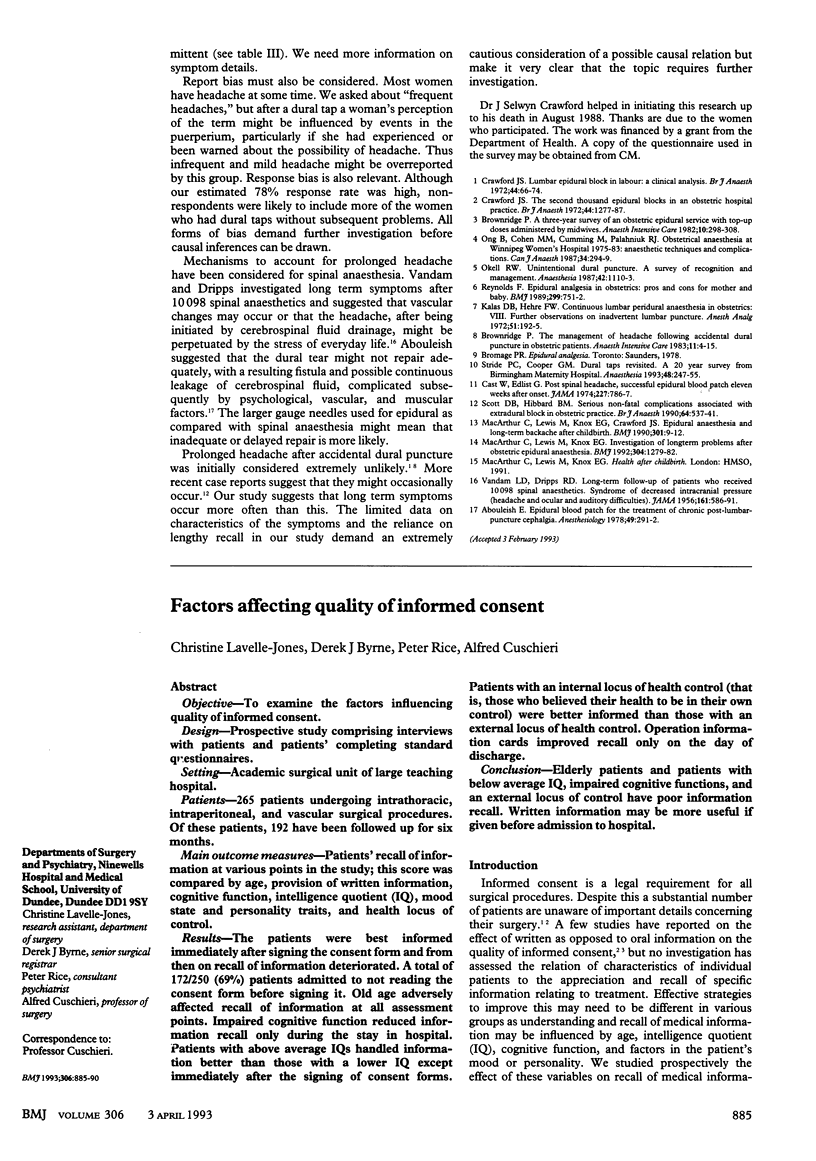
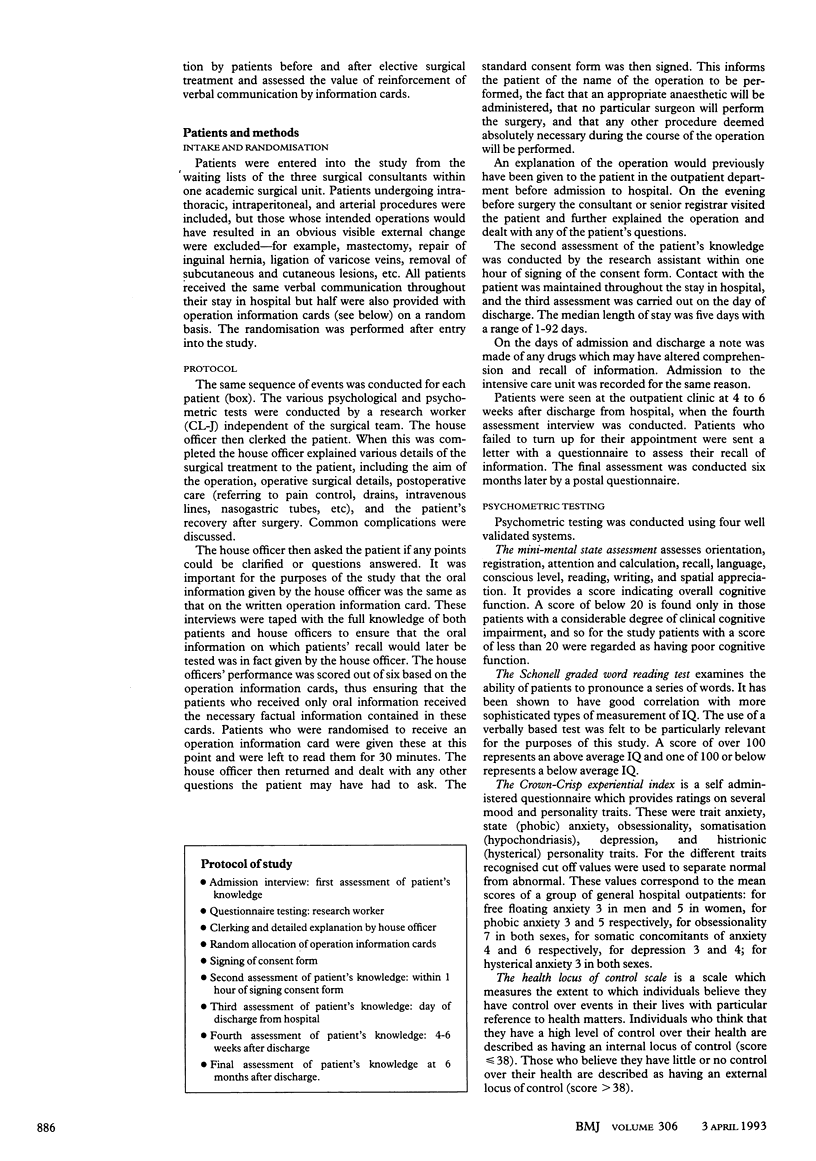
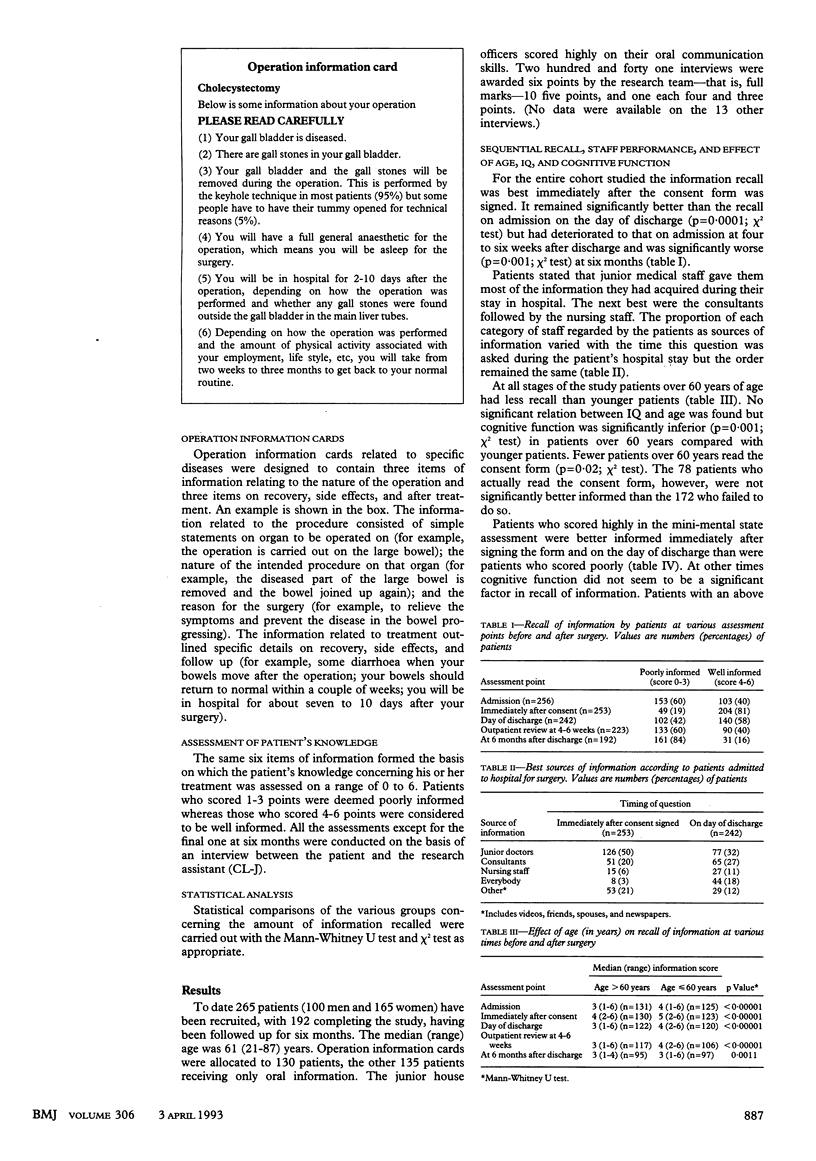
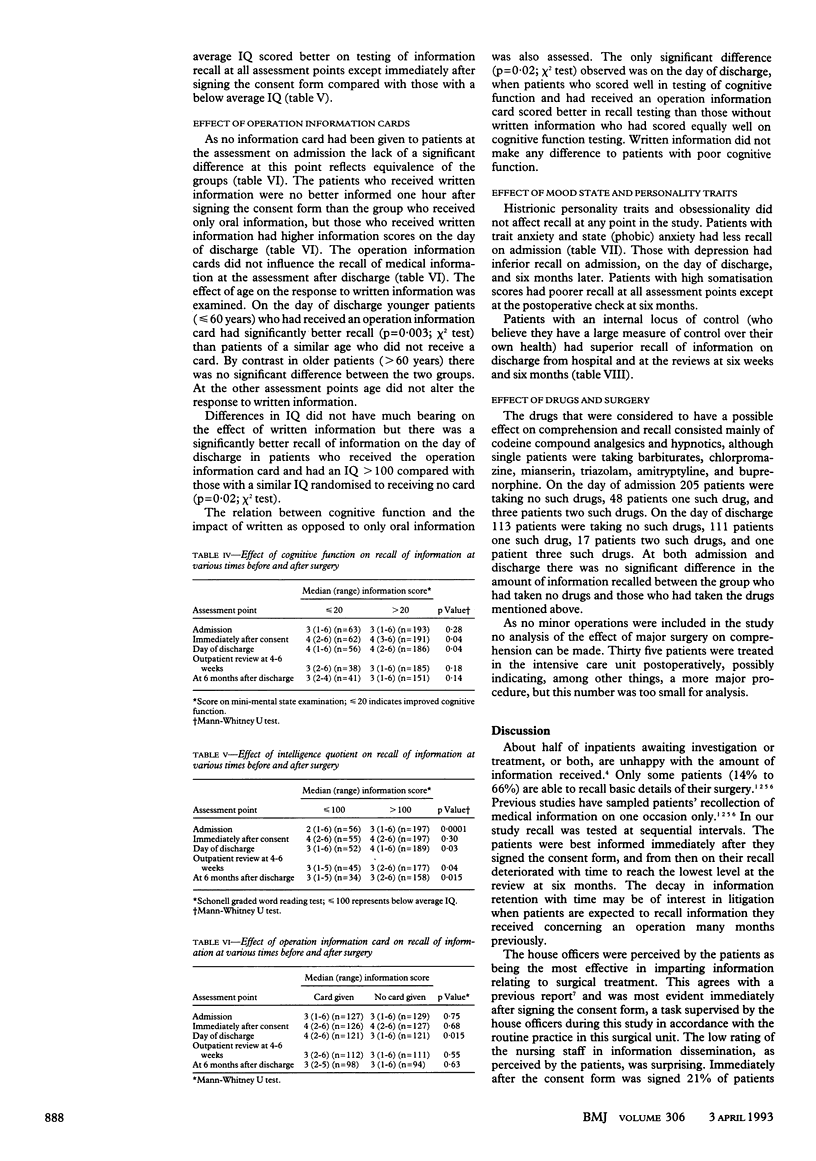
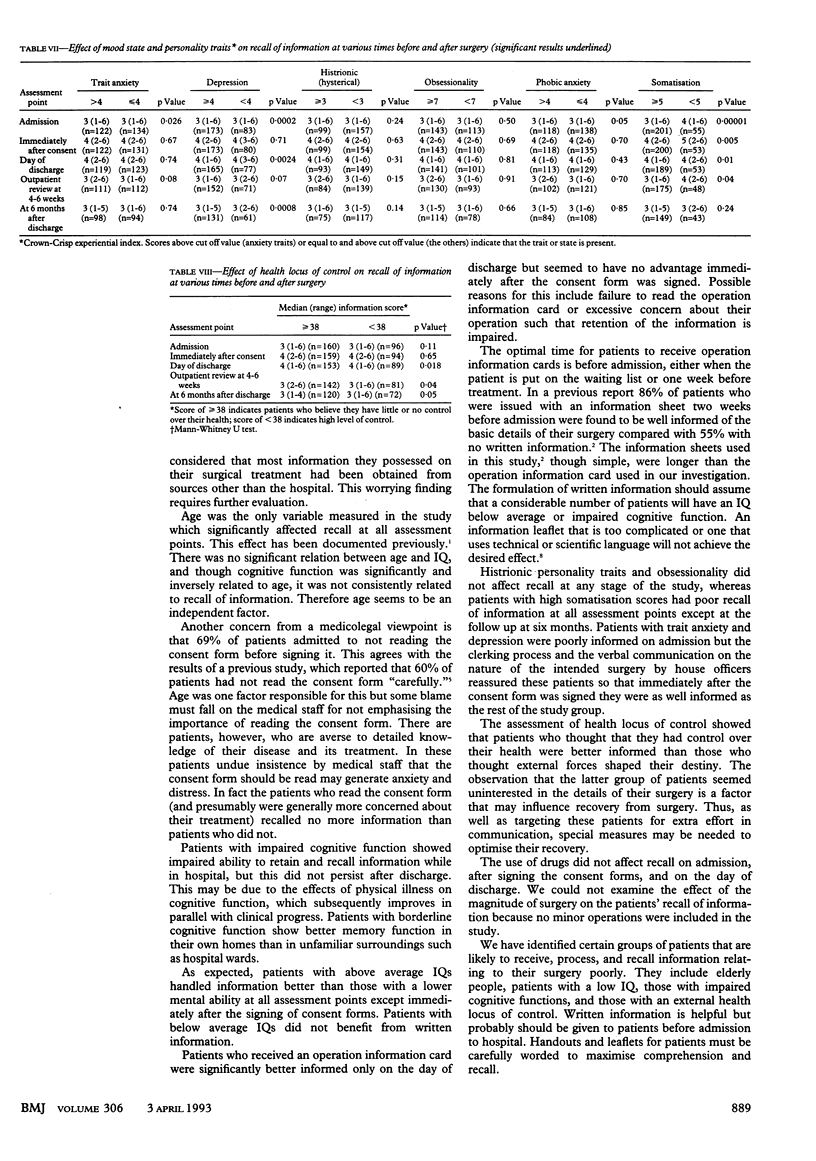
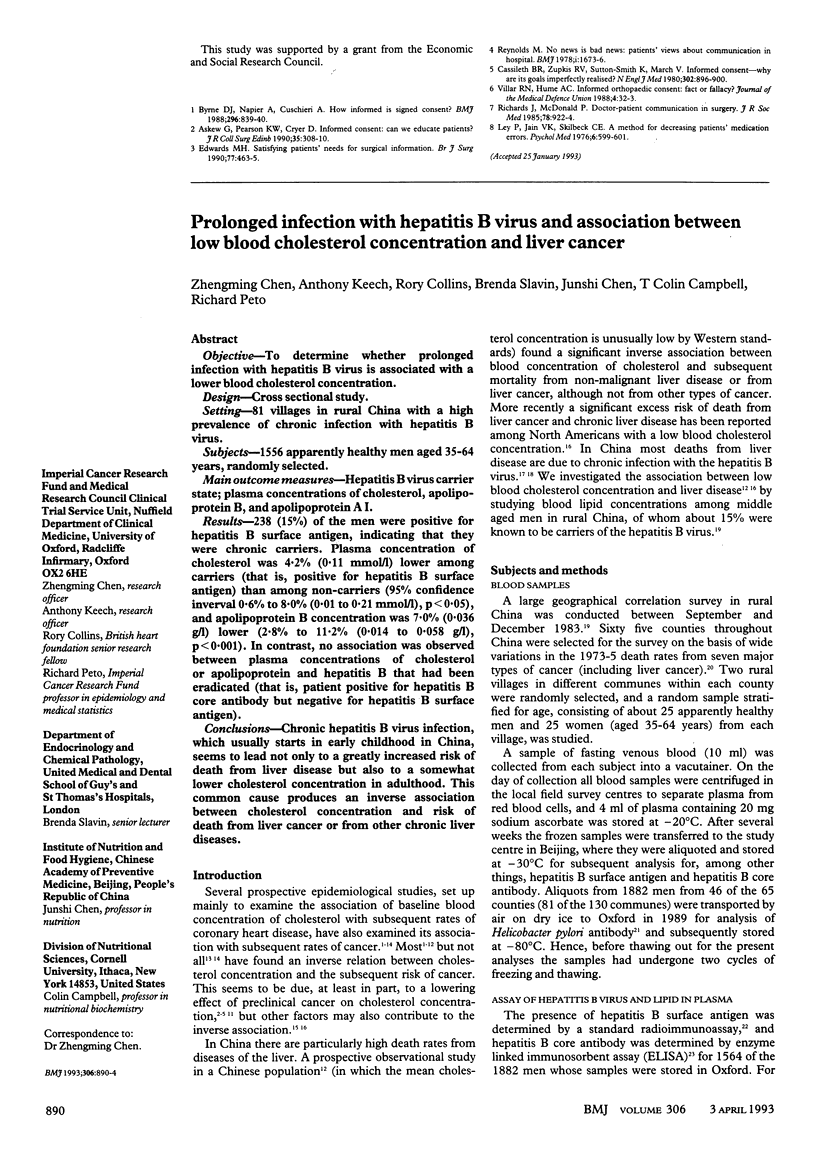
Selected References
These references are in PubMed. This may not be the complete list of references from this article.
- Askew G., Pearson K. W., Cryer D. Informed consent: can we educate patients? J R Coll Surg Edinb. 1990 Oct;35(5):308–310. [PubMed] [Google Scholar]
- Byrne D. J., Napier A., Cuschieri A. How informed is signed consent? Br Med J (Clin Res Ed) 1988 Mar 19;296(6625):839–840. doi: 10.1136/bmj.296.6625.839. [DOI] [PMC free article] [PubMed] [Google Scholar]
- Cassileth B. R., Zupkis R. V., Sutton-Smith K., March V. Informed consent -- why are its goals imperfectly realized? N Engl J Med. 1980 Apr 17;302(16):896–900. doi: 10.1056/NEJM198004173021605. [DOI] [PubMed] [Google Scholar]
- Edwards M. H. Satisfying patients' needs for surgical information. Br J Surg. 1990 Apr;77(4):463–465. doi: 10.1002/bjs.1800770431. [DOI] [PubMed] [Google Scholar]
- Ley P., Jain V. K., Skilbeck C. E. A method for decreasing patients' medication errors. Psychol Med. 1976 Nov;6(4):599–601. doi: 10.1017/s0033291700018237. [DOI] [PubMed] [Google Scholar]
- Reynolds M. No news is bad news: patients' views about communication in hospital. Br Med J. 1978 Jun 24;1(6128):1673–1676. doi: 10.1136/bmj.1.6128.1673. [DOI] [PMC free article] [PubMed] [Google Scholar]
- Richards J., McDonald P. Doctor-patient communication in surgery. J R Soc Med. 1985 Nov;78(11):922–924. doi: 10.1177/014107688507801109. [DOI] [PMC free article] [PubMed] [Google Scholar]


